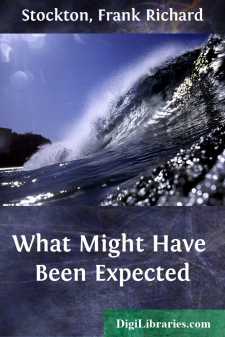Categories
- Antiques & Collectibles 13
- Architecture 36
- Art 48
- Bibles 22
- Biography & Autobiography 813
- Body, Mind & Spirit 142
- Business & Economics 28
- Children's Books 16
- Children's Fiction 13
- Computers 4
- Cooking 94
- Crafts & Hobbies 4
- Drama 346
- Education 46
- Family & Relationships 57
- Fiction 11829
- Games 19
- Gardening 17
- Health & Fitness 34
- History 1377
- House & Home 1
- Humor 147
- Juvenile Fiction 1873
- Juvenile Nonfiction 202
- Language Arts & Disciplines 88
- Law 16
- Literary Collections 686
- Literary Criticism 179
- Mathematics 13
- Medical 41
- Music 40
- Nature 179
- Non-Classifiable 1768
- Performing Arts 7
- Periodicals 1453
- Philosophy 64
- Photography 2
- Poetry 896
- Political Science 203
- Psychology 42
- Reference 154
- Religion 513
- Science 126
- Self-Help 84
- Social Science 81
- Sports & Recreation 34
- Study Aids 3
- Technology & Engineering 59
- Transportation 23
- Travel 463
- True Crime 29
Frank Richard Stockton
Frank Richard Stockton (1834-1902) was an American writer and humorist, best known for his short story "The Lady, or the Tiger?" which leaves readers with a tantalizingly ambiguous ending. His works often featured whimsical and fantastical elements, and he was celebrated for his wit and narrative inventiveness. Throughout his career, Stockton contributed to various magazines and authored numerous novels and story collections that captivated both children and adults.
Author's Books:
Sort by:
CHAPTER I. Harry Loudon Makes Up His Mind. On a wooden bench under a great catalpa-tree, in the front yard of a comfortable country-house in Virginia, sat Harry and Kate Loudon worrying their minds. It was all about old Aunt Matilda. Aunt Matilda was no relation of these children. She was an old colored woman, who lived in a cabin about a quarter of a mile from their house, but they considered her one...
more...
I I was on a French steamer bound from Havre to New York, when I had a peculiar experience in the way of a shipwreck. On a dark and foggy night, when we were about three days out, our vessel collided with a derelict--a great, heavy, helpless mass, as dull and colorless as the darkness in which she was enveloped. We struck her almost head on, and her stump of a bowsprit was driven into our port bow with...
more...
THE STORIES OF THE THREE BURGLARS I am a householder in a pleasant country neighbourhood, about twenty miles from New York. My family consists of myself and wife, our boy, George William, aged two, two maid-servants, and a man; but in the summer we have frequent visitors, and at the time of which I am about to write my Aunt Martha was staying with us. My house is large and pleasant, and we have...
more...
THE STEAMBOAT PIER The steamboat Manasquan was advertised to leave her pier on the east side of the city at half-past nine on a July morning. At nine o'clock Walter Lodloe was on the forward upper deck, watching the early passengers come on board, and occasionally smiling as his glance fell upon a tall man in a blue flannel shirt, who, with a number of other deck-hands, was hard at work...
more...
EUPHEMIA AMONG THE PELICANS. The sun shone warm and soft, as it shines in winter time in the semi-tropics. The wind blew strong, as it blows whenever and wherever it listeth. Seven pelicans labored slowly through the air. A flock of ducks rose from the surface of the river. A school of mullet, disturbed by a shark, or some other unscrupulous pursuer, sprang suddenly out of the water just before us, and...
more...
THE MAGIC EGG The pretty little theatre attached to the building of the Unicorn Club had been hired for a certain January afternoon by Mr. Herbert Loring, who wished to give therein a somewhat novel performance, to which he had invited a small audience consisting entirely of friends and acquaintances. Loring was a handsome fellow about thirty years old, who had travelled far and studied much. He had...
more...
CHAPTER I. There was a wide entrance gate to the old family mansion of Midbranch, but it was never opened to admit the family or visitors; although occasionally a load of wood, drawn by two horses and two mules, came between its tall chestnut posts, and was taken by a roundabout way among the trees to a spot at the back of the house, where the chips of several generations of sturdy wood-choppers had...
more...
In the very olden time there lived a semi-barbaric king, whose ideas, though somewhat polished and sharpened by the progressiveness of distant Latin neighbors, were still large, florid, and untrammeled, as became the half of him which was barbaric. He was a man of exuberant fancy, and, withal, of an authority so irresistible that, at his will, he turned his varied fancies into facts. He was greatly...
more...
I. MY GRANDMOTHER AND I. My grandmother sat in her own particular easy-chair by the open window of her back parlor. This was a pleasant place in which to sit in the afternoon, for the sun was then on the other side of the house, and she could look not only over the smooth grass of the side yard and the flower beds, which were under her especial care, but across the corner of the front lawn into the...
more...
In the spring of a certain year, not far from the close of the nineteenth century, when the political relations between the United States and Great Britain became so strained that careful observers on both sides of the Atlantic were forced to the belief that a serious break in these relations might be looked for at any time, the fishing schooner Eliza Drum sailed from a port in Maine for the banks of...
more...











